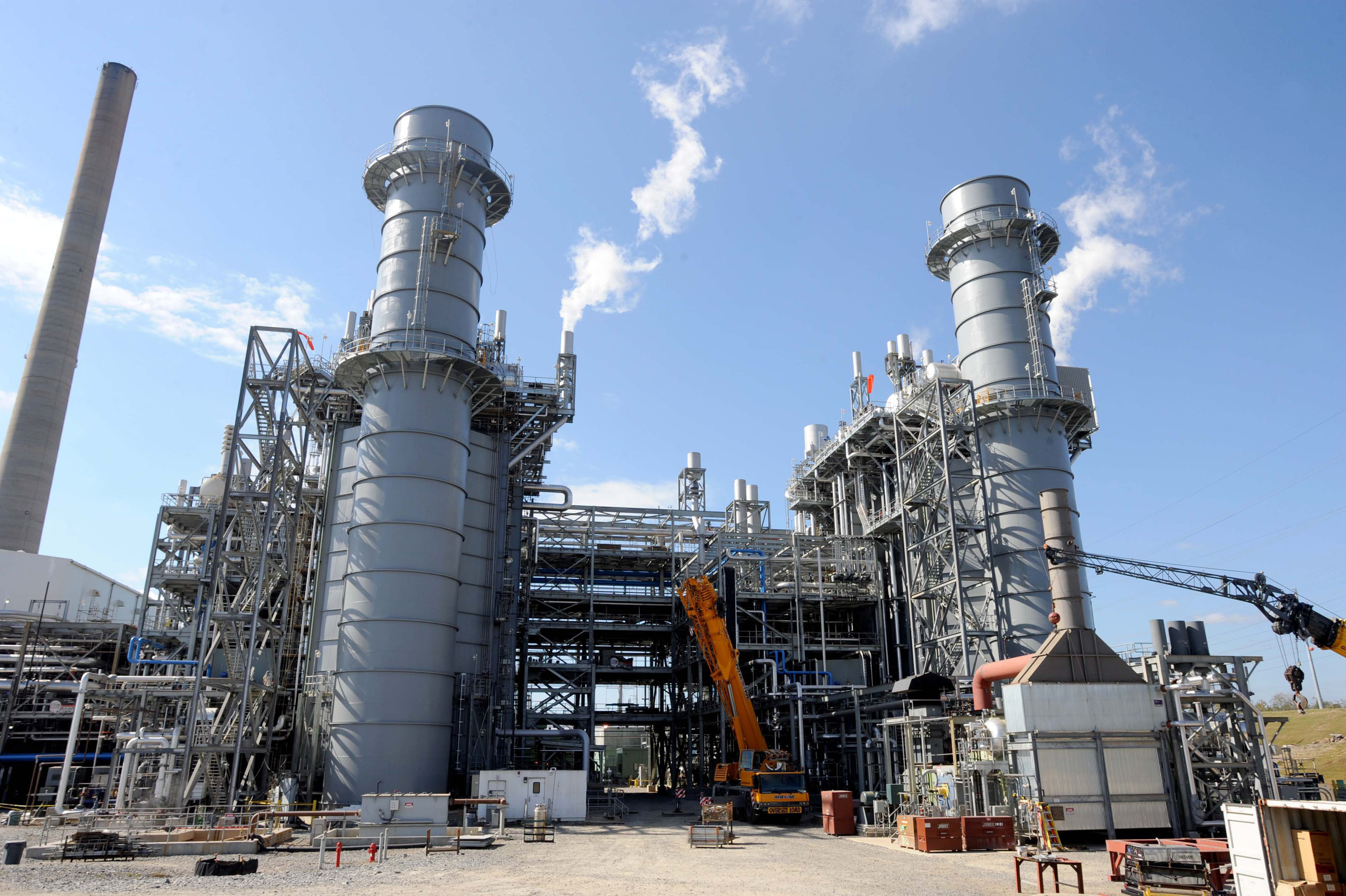Tuesday March 26th… Dear Diary. The main purpose of this ongoing post will be to track United States extreme or record temperatures related to climate change. Any reports I see of ETs will be listed below the main topic of the day. I’ll refer to extreme or record temperatures as ETs (not extraterrestrials).😉
Plant McDonough…Pollution In My Backyard
Up to this point since starting guyonclimate.com in early 2017 I’ve posted on carbon pollution coming from far flung places like India and China without specifically reporting on individual sources. Today I will delve into the evolution of one source right in my backyard that is only about ten miles due south of my house.
My community and a large swath of Atlanta via the Georgia Power Company relies on the McDonough plant for electricity. I’ve driven by the site in an industrial area off Atlanta road many years ago noticing mounds of coal, coal ash, and seeing Mack dump trucks loaded with coal moving in and out of the facility. A smokestack was emitting black soot. This couldn’t be good for the surrounding communities. Importantly, the plant is located in, yep you guessed it, one of the poorest sections of southern Cobb County. Fortunately I don’t think I have had any ill effects from the plant being located upwind most of the time.
My reason for today’s post is that one of my fellow Climate Reality compatriots has brought the McDonough plant back to my attention. It’s quite important that individuals find out where their local electricity is coming from so that organized protests for change can occur if necessary. Breath a sigh of relief if your power comes primarily from solar and wind, but get steamed if your Tesla remains electrified from coal. What’s the point of driving a hybrid or all electric if by doing so more pollution from somewhere gets pumped into the atmosphere or drained into your water? Right?
Let’s specifically look at the history of the McDonough plant to see if positive changes have taken place since I first saw the thing in operation a couple of decades ago. Upon Googling the plant I initially saw this: Plant McDonough-Atkinson is named for the late John J. “Jack” McDonough – who was Georgia Power’s president from 1957 to 1963 and for Henry M. Atkinson, one of the founders of Georgia Railway and Electric Company. Georgia Power retired its coal-fired units at Plant McDonough-Atkinson in 2011 and added three natural gas combined cycle units.

Well, this is good news. Apparently the McDonough plant is no longer coal fired, being run off cleaner natural gas since 2011, so why are their more complaints as of 2019?
Here is a recent linked article from my local newspaper that I would like all to read:
Obviously the quick answer to my last question is dirty very toxic coal ash. Georgia Power has been negligent or reticent to incur additional costs of disposing the stuff that can easily leech into ground water sources causing cancer. Fission nuclear power’s big downside is radiation. Beyond climate change pitfalls coal fired plants are just down right poisonous for surrounding people.
I’ll let all reading my posts know what happens to Plant McDonough’s residual coal ash ponds. Despite being run off cleaner natural gas, which is also a greenhouse pollutant, I’ll be pushing for the thing to eventually be closed even if I have to hold a picket sign from my wheelchair along with the rest of my local Atlanta Climate Reality chapter. Wouldn’t it be wonderful if the entire industrial site were converted to a solar farm? I’m sure that Georgia Power could profit off that. We will see.
……………………………………………………………………………………………………
Here is some more climate and weather news from Tuesday:
(As usual, this will be a fluid post in which more information gets added during the day as it crosses my radar, crediting all who have put it on-line. Items will be archived on this site for posterity. In most instances click on the pictures of each tweet to see articles.)
Yes it can still get cold and stat cold for a long period of time across portions of the planet:
On the other hand…
(If you like these posts and my work please contribute via the PayPal widget, which has recently been added to this site. Thanks in advance for any support.)
Guy Walton- “The Climate Guy”